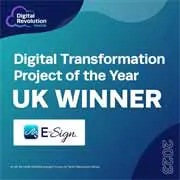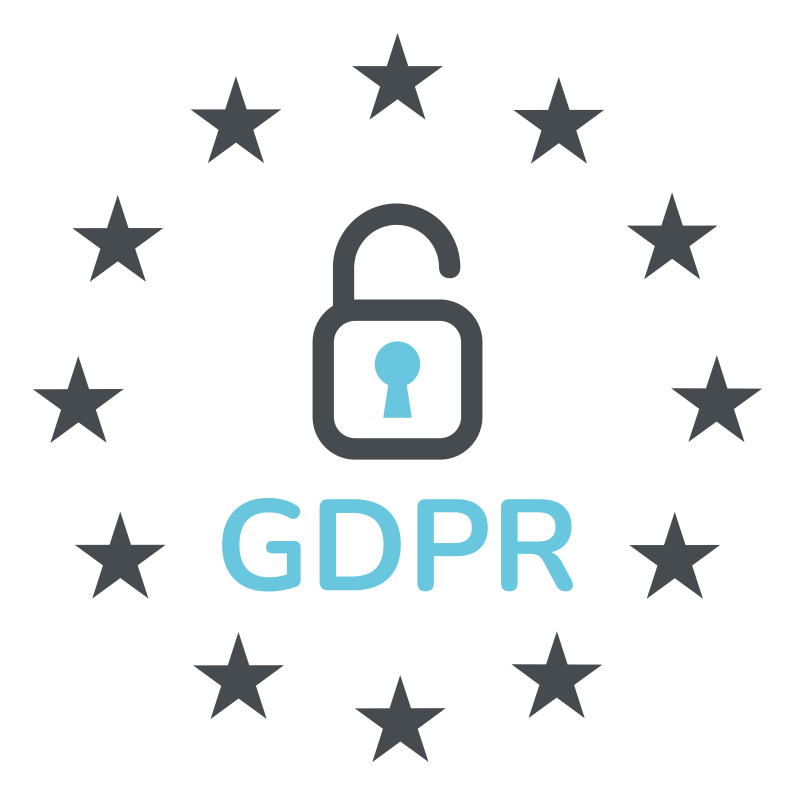Home | News & Insights |
Electronic Signature Strategies For Your Business
Laura Cain
Marketing & Brand Manager
PUBLISHED
23rd September, 2024
Contents
Here at E-Sign, we believe all businesses can play a key role in integrating electronic signature technology throughout various industries. But in order to do so, a clear strategy is needed. To help guide your business model, we will highlight the most useful electronic signature adoption methods. These include:
- Amending your company policy to accept electronic signatures used by customers.
- Allow your business to make electronic signatures and the subsequent policy available to all your clients
- Integrate electronic signatures into your other ‘e-solutions’.
This post draws on all the current electronic signature guidelines and industry best practices. To get you thinking about questions like,
- Who should take the lead with regard to electronic signatures ‘The Business’ or the ‘client’?
- As a business, why do I need to develop a clear strategy for all three of these approaches? What is at risk if I don’t?
- Do I have an electronic signature policy for the various parts of my company?
- What electronic signature solutions are used throughout my organisation for other processes and channels? Is there a corporate standard?
- What electronic signature capabilities have my competitors, policy administrators and other service providers integrated with? Is their solution reliable and does it meet my risk criteria?
Why do businesses need electronic signatures?
The shift from paper to all-electronic processes is taking place rapidly across the industry. With companies adopting electronic signatures for new business processing.
Digital signatures have become a foundational technology for straight-through processing. The changing expectations of consumers are converging with electronic signatures and automated contractual agreements. To shape the future of all business matters, they want speed and an easy user interface.
“It is therefore vital that your business recognises the strategic importance of electronic signatures and seeks guidance where needed”.
It is not surprising to see more and more businesses embracing this technology, since there are benefits for everyone involved. Carriers that offer electronic signatures not only make it easier for other businesses and customers to do business with them. They also gain unprecedented visibility and control over operations.
Benefits of e-signatures
Having an automated method for capturing signatures (either face-to-face or remote) helps improve productivity and shortens the time to the completion of a transaction.
Regardless of where the documents need to be stored long-term, whether at the agency or with the carrier, both parties reduce risk related to disputes. In particular with the E-Sign service as we offer a full audit trail of all document transactions. And most important, the customer enjoys a more convenient and efficient experience. Leading to greater customer loyalty and a greater number of word-of-mouth referrals.
With such compelling benefits, the trend toward electronic signatures will only continue to gain momentum. A recent e-commerce survey ranked electronic signatures as the technology initiative that would have the greatest impact on business.
This makes for a positive future, but who will take the lead with regards to electronic signatures? Does widespread adoption depend on the calibre of service providers? At E-Sign, we believe this issue has unnecessarily introduced confusion and slowed adoption within industry.
A lot of companies do not want to wait for smaller businesses and individuals to adopt electronic signatures on their own and are beginning to address the issue.
To assist in implementing your strategy, we will outline the most common electronic signature adoption methods in this guide.
Where to start with your e-signature strategy
If it is your responsibility to source, implement, and organise digital solutions for your organisation. The best place to start is to establish the use cases for the platform and the required features needed to meet your business requirements.
A good approach for this is to work with relevant stakeholders from different parts of your organisation and determine the simplest use cases initially that will have the biggest impact. Consider key parameters like implementation speed and the impact on ROI during the evaluation. By finding quick wins with the software you demonstrate its value to senior management.
Assessing use cases is just the first step in the process of implementing and expanding your e-signature solution. The other steps include:
- Approach new business groups – understand their current signing processes, any pain points or issues in their workflows, and highlight how e-signature technology can benefit them.
- Qualification checklist – carry out a more in-depth analysis of the specific requirements for each use case.
- Demonstration – use case-specific demonstrations with key stakeholders to promote the solution internally.
- Deployment plan – keep the project on track with milestones and deliverables clearly presented to stakeholders along with a timeline to go live.
- Internal marketing – highlight the reasons behind the new solution for staff and keep them updated, engaged, and informed, throughout the implementation process with pre and post-launch internal communications.
Electronic signature use cases for businesses
Many businesses often handle different types of documents that require a signature. By transitioning from paper to electronic documents, you can save time, and money, and significantly improve efficiency. Some examples of potential use cases for e-signatures include:
- Purchase orders
- Vendor and supplier agreements
- Sales contracts
- Change orders
- Contract signing
- Client and employee onboarding
- New customer forms
- Loan and financing applications
- Invoicing and payment authorisation
Amending your company policy to accept electronic signatures used by customers
A growing number of individuals as well as businesses are taking the initiative and have started using electronic signature services for their own needs and operations.
Unfortunately, most contracts between businesses and their clients say nothing on the subject of electronic signatures. Without a clear policy in place, there is a risk where the electronic signature processes being used, may not be compliant. And the subsequent electronic records are not supported or enforceable.
Some companies who have implemented the electronic signature service into operations have now started to issue guidelines on how to create a list of approved electronic signature vendors. Clear policies are needed to help propel adoption and drive businesses forward.
However, the process of certifying electronic signature providers is far from simple. Accepting any electronic signature solution “as long as it meets the ‘E-sign’ law” sets a lower standard. As a carrier, you will want to ensure that any solution chosen by your business associates, has a proven method of capturing electronic evidence. Whilst securing the entire transaction from beginning to end.
This is why E-Sign prides itself on being one of the few service providers out there who offer a unique ‘advanced’ electronic signature service (as stipulated by both E.U and federal guidelines). This ensures we capture a full audit trial for all your agreements to ensure compliance is met.
Allow your business to make electronic signatures and the subsequent policy available to all your clients
It is becoming increasingly important to establish a corporate standard across all channels. To ensure security, enforceability and minimise implementation efforts. However, when it comes to independent customers, all too often the approach has been somewhat relaxed.
The desire to ensure a consistent trusted approach to electronic transactions and records is the reason for carriers to offer electronic signature capability. But the benefits don’t stop there. Electronic signatures give a span of control that does not exist when a paper document goes out in the mail for a signature. This gives those involved complete control at every stage until the transaction is completed. As well as visibility into every action taken by transaction participants (in particular to e-sign, the full audit trial).
It also eliminates the risk of missing, misfiled or incomplete paperwork. Which can compromise your ability to demonstrate compliance or defend against disputes.
Barriers to adopting electronic signatures
Despite all the benefits of electronic signatures, there may still be a little apprehension in the marketplace to adopt them as the ‘standard’. This is because as a new concept, most businesses during the early stages only had access to the most basic electronic signature with no validation processes. Which resulted in very limited success in implementation.
However, this is now rapidly changing due to the ease of using electronic signatures on mobile devices. As well as the flexibility and integration into other commonly used web-based solutions.
One of the last remaining barriers that is holding both industry and the use of electronic signatures back, is the traditional and nostalgic stance companies take in using wet signatures. And not making the necessary evolutionary changes to adopt a more efficient approach.
“Businesses need to listen to customers who want to complete transactions with ease. Or risk losing them to competitors who have already made the simple change to their policy and practices at a minimum of expense”.
Best practices for using electronic signatures in business processes
To ensure a successful e-signature implementation, it’s crucial to follow best practices after the software is in place. Electronic signature platforms can offer great advantages for businesses, but proper planning is key to fully maximising their capabilities. Here are some essential tips to streamline the adoption of eSignatures within your document workflows:
Select the right solution for your business – Conduct thorough research on available e-signature platforms to find the one that fits your organisation’s needs. And provides the features necessary to enhance workflow efficiency.
Focus on security – The e-signature software you choose should adhere to stringent security standards. To safeguard sensitive data from potential cyber threats, both during the signing process and after documents are completed and stored.
Implement strong authentication – Protect your documents by using robust authentication methods. Such as multi-factor authentication, ensuring only authorised individuals can access and sign them.
Ensure comprehensive staff training – As you integrate the new e-signature platform, make sure your employees receive adequate training and resources. Encourage secure practices, such as regularly updating and securing passwords, and provide clear guidance on safe usage.
Educate signers on the process – Since some individuals may be hesitant about electronic signatures, it’s helpful to inform them about the process, the security measures in place, and the legal validity of e-signatures, building their trust and confidence in the system.
Integrate electronic signatures into your other ‘e-solutions’
It’s become apparent that any electronic applications or ‘apps’ that your business may use as part of your client interface, requires an electronic signature capability integrated into its processes as part of your business solutions.
As well as the obvious reason already laboured on business efficiency, it removes the requirement for the clients to learn or try to adopt the various signature methods in the marketplace. Some of which are unnecessarily complex, and as a business trying to promote simplicity and ease of use. It prevents the possibility of your business having to accommodate multiple signature service providers from a very diverse client base.
It is important however to recognise the need to ensure your business integration with a secure and reliable signature service provider. Which fits in with your business model, and can prove ease of use and beneficial to those who will experience it throughout your customer interface platforms. Again the emphasis must be on trusted, simple and secure.
Summary
As a business who has innovation and efficiency at the core of its values for customer care. It is important to have a clear and simple strategy to implement the aforementioned changes that can only create opportunity, increase revenue and build on customer loyalty. Whilst at the same time reduce operating costs and create a competitive differentiation between you and those in your market sector.
E-Sign is designed to provide you the simplest way to conduct business in the marketplace using the most advanced and secure electronic signatures. We offer plans and services that are simple use, easy to implement, and all at a minimum cost to your business.
Here at E-Sign we can tailor our service to suit your operational requirements, and implement our service into your infrastructure. Contact us today to discuss your electronic signature needs and we can ensure you receive a tailored solution that supports your business operations. You can also get started with E-Sign by registering for our 14-day free trial. This will allow you to explore the key features and functionality of the platform for yourself and see how it can work for your document workflows.
 Facebook
Facebook
 X (Twitter)
X (Twitter)
 LinkedIn
LinkedIn











